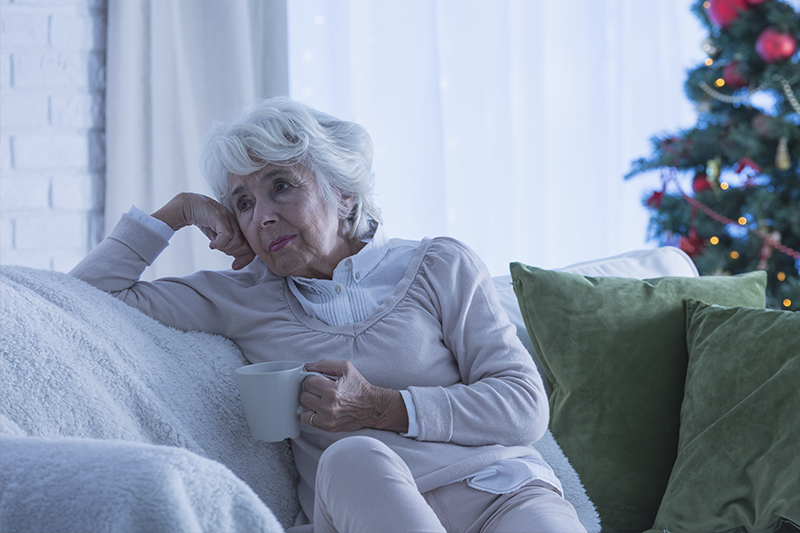Mental Health Tip: Help for Holiday Depression in Seniors

Mental health in seniors is important year-round, but especially during the holidays. In spite of its reputation for being a season of joy, for many seniors, the holidays are a time of deep sadness. Yearning for holidays past, grief over the loss of loved ones, and difficult changes to health can magnify all through the holiday season. It’s imperative to take steps to help prevent the downward spiral into holiday depression in seniors.
Begin by asking yourself these three questions if a senior you love is feeling sad this holiday season.
- Could it possibly be normal nostalgia? Wistful feelings of nostalgia, remembering pre-pandemic holiday celebrations and get-togethers, are normal for all of us. See if the older adult’s sadness is lifted following a journey down memory lane, or if it lingers no matter what the topic of conversation.
- Is health impacted? If the senior is struggling to sustain a healthy eating plan, has difficulty staying or falling asleep during the night, is losing weight, and/or feeling exhausted, these could all be signs and symptoms of depression.
- Is the senior disengaged? Watch for a lack of interest in previously-enjoyed activities, diminished motivation, difficulties with concentration and focus, and/or the inability to sit still without fidgeting, as these can also be typical in depression.
Lara Honos-Webb, clinical psychologist and author of “Listening to Depression: How Understanding Your Pain Can Heal Your Life,” compares the difference between sadness and depression to colors. “A person is blue if they have deep, colorful emotions in response to loss in life. Depression is more like the color black – there [are] no subtle colors to the emotion but stark pain.”
It is essential to seek medical assistance if holiday depression in seniors is suspected – and even if you’re unsure – as effective treatments are available and necessary, and early detection is key. And there are specific steps family members can take to support a loved one with depression:
- Make a list of the senior’s interests, and set a schedule to take part in one or more of them together.
- Encourage your senior loved one to exercise along with you, including getting outside for walks to enjoy nature.
- Turn on some of the older adult’s favorite music, or if the senior plays an instrument, request that he/she play some songs for you.
- Stay positive yourself, providing affirmations to remind a senior loved one of the many small but wonderful aspects each new day brings.
- Most of all, just be there, regardless of the older adult’s mood. Frequently, just sitting together quietly can make an enormous amount of difference in how someone feels.
For even more tips and resources that can help improve health and wellbeing for the elderly, reach out to Sage Home Care at 1-800-578-4554. Our experienced home health aides provide high-quality Greenwich home health care, in Greenwich and serving the nearby communities, making every day the very best it can be. For a full list of each of the communities we serve in Connecticut and New York, please visit our Service Area page.

